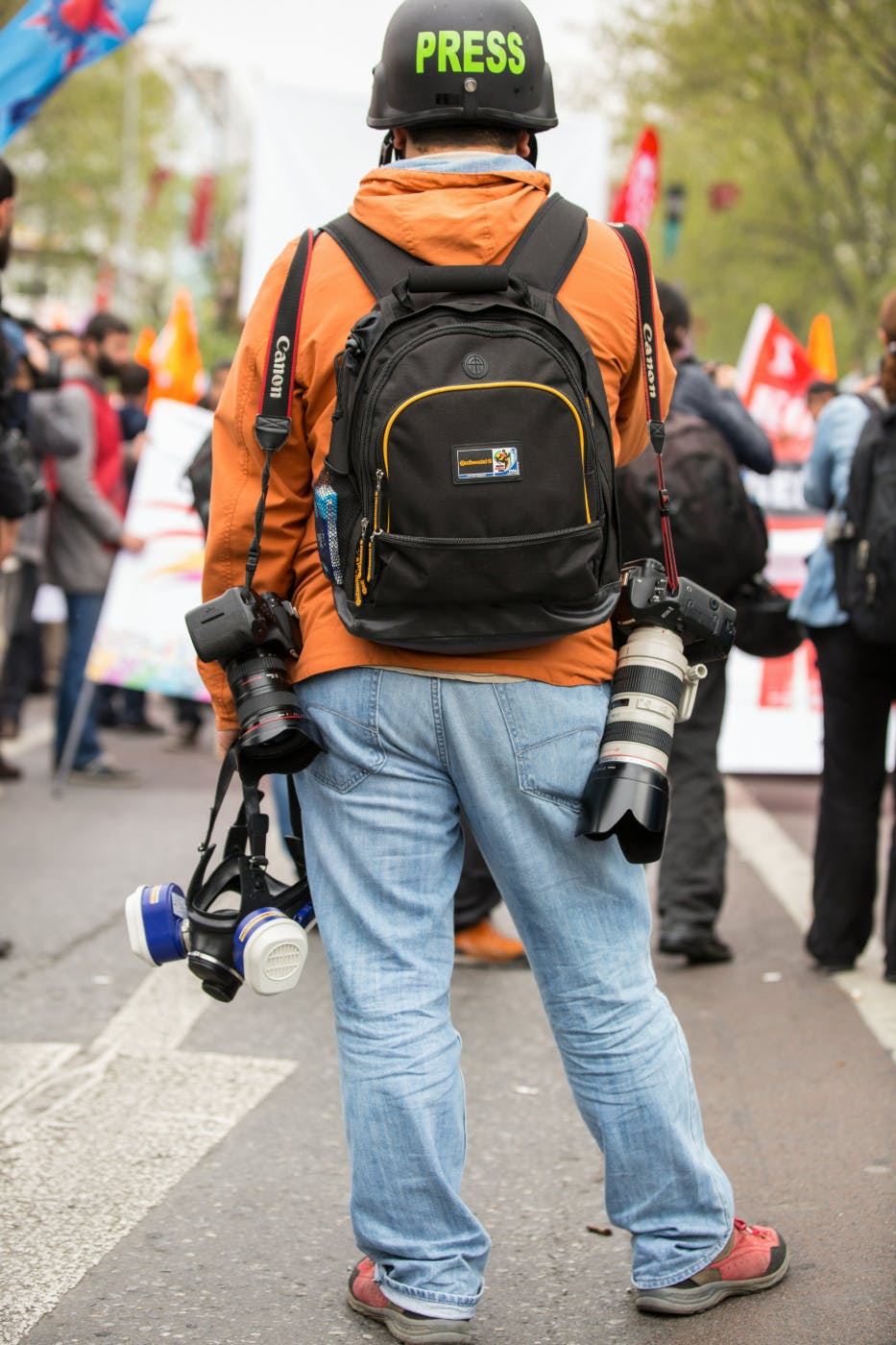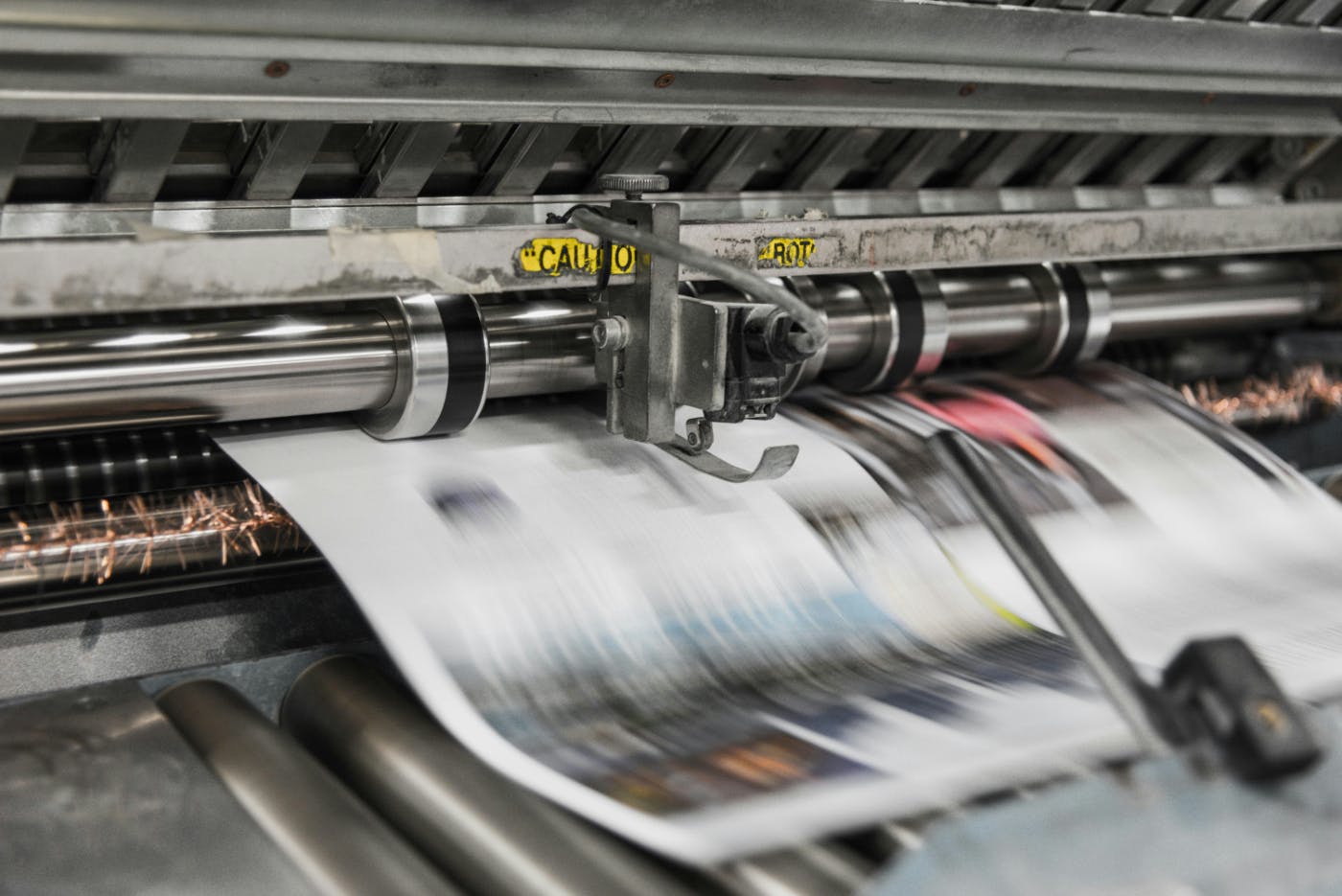
This isn’t about politics or party. A free press is a cornerstone of democracy, ensuring accountability, transparency, and truth for all—no matter where you stand.
If you looked at the title of this blog and thought, “Here we go, another Libtard bitching about the government,” then I have two things to offer. The first is, nope, this isn't a complaint about the government; the government is not a factor in why I am writing this. The second thign is, if you’re using the term Libtard, you’re not going to like this anyway, so save yourself some indigestion and move along.
I sat down this Friday morning, coffee in hand, and thought, what do I want to write about this morning? Now, as the copywriter for ThoughtLab, I am encouraged to write about the business, the field of branding and marketing, and website design, as that is what ThoughtLab excels at. However, I am very lucky that my boss, the great and powerful Harker, understands that I am a couple of fries short of a happy meal and that I need to express stuff now and then in the blog. Nonbusiness-related stuff. This morning, I was thinking how lucky I am that I can stray from the path now and then and write a little something off the beaten path. How lucky I am that I have that freedom.
Freedom.
Free from fear, free from demands, free from an iron fist slamming down on me and a voice saying, No, write only what we tell you, and the truth is fluid. I am free from that kind of craziness. I am lucky. I know I’m lucky, yet I constantly push my boss. Apologies if I get to be too much Mr. Harker. But thanks for the freedom.
I’m lucky, I thought as I sipped coffee and stared at the blank screen. I am lucky. Then I thought …
We are all lucky because, for now, we have a free press in this country that writes truth and keeps us all informed. I thought, what does that mean, a free press? And why is that so important? And so, with that in mind and the freedom I have to move onto the path least taken, I decided to hail the free press this morning in a purely thankful, non-political, not triggering anyone way.
So, here we go, some free press rah-rah time!
The Importance of a Free Press: Why Journalism Matters to Everyone
Imagine this: a world where you only know what someone in power wants you to know. Everything else? Poof! Swept under the rug like crumbs after a midnight snack. Sounds like a dystopian novel, doesn’t it? But that’s precisely what happens when a free press doesn’t exist. Journalism, as pesky as it might seem when scrutinizing every nook and cranny, is one of the most essential pillars of a functioning society. It keeps the powerful accountable, the public informed, and the truth… well, visible.
So, let’s explore the concept of a free press, why it matters, and how it benefits everyone—from the billionaire CEO to the barista making your morning coffee. No politics, no finger-pointing, just a celebration of the watchdog that’s been keeping things (relatively) honest since day one.

What Is a Free Press, Anyway?
First things first: what do we mean by a "free press"? At its core, a free press means that journalists can report on events, issues, and people without interference, censorship, or fear of retaliation. This freedom allows them to investigate stories—even the uncomfortable ones—and share their findings with the public. It’s not just about writing headlines; it’s about digging deep to uncover what’s really going on.
Think of the press as society’s mirror. It reflects what’s happening, even if what we see isn’t pretty. Without that mirror, we’d be left in the dark, relying on whispers and rumors instead of facts. A free press doesn’t mean every journalist gets it right all the time—mistakes happen, biases exist—but it does mean the pursuit of truth isn’t stifled.
The Benefits of a Free Press
1. Accountability for the Powerful
Let’s be honest: power is intoxicating. And when people get a taste of it, there’s a tendency to… overindulge. A free press serves as a check on that. It’s the nosy neighbor peeking over the fence, asking, “Hey, what are you up to over there?” From uncovering corruption to highlighting injustice, journalists shine a light in places some would prefer to keep dark.
Take historical examples like the Watergate scandal. Without journalists digging into what seemed like a minor break-in, the public might never have learned about the larger abuses of power at play. It’s a classic case of “If you’ve got nothing to hide, you’ve got nothing to worry about,” right?
2. Empowering the Public with Knowledge
Ever heard the phrase, “Knowledge is power”? A free press arms us with the information we need to make decisions—whether it’s choosing who to vote for, what policies to support, or even what products to buy. Without accurate and timely information, we’re all just guessing. And let’s be real: nobody wants to live in a world where you have to guess if the bridge you’re driving over was actually inspected.
Journalists break down complex issues—economics, climate change, healthcare—so the average person can understand what’s at stake. Sure, some topics might feel like a slog (anyone else zone out during budget reports?), but having that information available is vital.
3. Giving a Voice to the Voiceless
A free press doesn’t just focus on the big players; it also amplifies the stories of everyday people. It shines a spotlight on marginalized communities, social injustices, and grassroots movements that might otherwise go unnoticed. By giving a platform to those who are often ignored, journalism fosters empathy and understanding.
Remember when investigative reporting uncovered unsafe working conditions in factories? Or when coverage of civil rights protests helped galvanize public support? These stories matter because they remind us that every voice counts.
4. Fostering Transparency and Trust
Transparency is the glue that holds a society together. Without it, mistrust festers, and conspiracy theories thrive. A free press plays a critical role in fostering transparency by asking tough questions and demanding answers. Sure, it’s uncomfortable—nobody likes being put on the spot—but it’s necessary.
When journalists do their job well, they act as intermediaries between the public and those in power. They’re not cheerleaders or critics; they’re the referees, calling out fouls and keeping the game fair.
The Risks of a World Without a Free Press
Now, let’s flip the script. What happens if we don’t have a free press? It’s not a pretty picture. Without journalists holding people accountable, power becomes unchecked. Corruption festers. Misinformation spreads like wildfire. Suddenly, the truth becomes a luxury, not a right.
Imagine living in a place where the only news you hear comes from those in charge. They control the narrative, cherry-picking what you know and burying the rest. History is full of examples of what happens in such environments, and spoiler alert: it never ends well.

The Press Is Free, But It’s Not Easy
Here’s the thing: being part of the free press isn’t a walk in the park. Journalists face immense pressure—financial, political, even physical—to back off from certain stories. It’s a tough gig, and it’s not getting any easier. Yet, despite these challenges, reporters continue to dig, question, and publish because they know the stakes are high.
In recent years, the business model for journalism has shifted with the rise of digital media and the decline of traditional advertising revenue. This has led to layoffs, closures, and a growing concern about the sustainability of quality reporting. But even in the face of these obstacles, the press perseveres, finding new ways to keep the public informed.
What Can We Do?
So, how can we support a free press? Here are a few ideas:
- Subscribe to Credible News Outlets: Journalism isn’t free, and quality reporting takes resources. By subscribing to reputable news organizations, you’re helping to fund the pursuit of truth.
- Think Critically: Not all news is created equal. Learn to differentiate between credible reporting and sensationalist clickbait. Check your sources and seek out diverse perspectives.
- Defend Press Freedom: Speak up when you see threats to journalism, whether it’s censorship, harassment, or disinformation campaigns—advocacy matters.
- Support Local News: Local journalism is the backbone of a free press. It’s where many of the most important stories start. Don’t overlook your community papers and broadcasters.
The Press and All of Us
At the end of the day, a free press isn’t just about the journalists. It’s about all of us. It’s about ensuring that we live in a world where truth matters, where power is checked, and where every voice has a chance to be heard. Sure, it’s messy. Democracy always is. But as long as we have a free press, we have a fighting chance to make things better.
So, the next time you see a headline that makes you uncomfortable or an article that challenges your perspective, remember: that’s the point. A free press isn’t here to make us feel good; it’s here to make us think, question, and grow. And that’s something worth celebrating.

Summing Up
This isn’t about politics or party; it’s about something far bigger. A free press affects everyone, regardless of who you are or where you stand. It’s a cornerstone of what makes America great, a defining feature of our democracy, and a force for good that’s shaped our history for centuries. From exposing injustices to uncovering corruption, the press has played a pivotal role in creating the society we enjoy today.
Just think about the stories that have changed the course of history: investigative journalism that brought corporate misdeeds to light, coverage of social movements that inspired change, and even the everyday reporting that helps communities stay informed. These moments didn’t happen in isolation. They happened because a free press was there to ask the tough questions, demand accountability, and report back to the people.
A free press is worth defending—not just because it’s convenient but essential. It ensures that power is held to account, that truth is brought to light, and voices from every corner of our nation are heard. If ever challenged, it’s a fight worth having because, without it, we lose far more than just news. We lose transparency, trust, and the foundation of an informed, empowered society. That’s why a free press matters and why it’s always worth standing up for. In protecting a free press, we are protecting ourselves, our democracy, and the very principles that make this country a beacon of freedom and opportunity for all.

